Iraq's Parliament Ousts Defense Minister
August 25, 2016 - Patrick Martin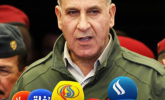
Iraq’s Prime Minister Haidar al-Abadi and his entire cabinet are at risk of a no-confidence vote following Parliament’s ouster of Sunni Defense Minister Khalid al-Obeidi.

Iraq’s Prime Minister Haidar al-Abadi and his entire cabinet are at risk of a no-confidence vote following Parliament’s ouster of Sunni Defense Minister Khalid al-Obeidi.
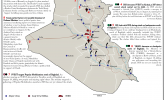
Iraqi Defense Minister Khalid al-Obeidi faces an upcoming vote of no-confidence in the Council of Representatives (CoR) following accusations of corruption from the Reform Front, the opposition bloc driven by former Iraqi Prime Minister Nouri al-Maliki.
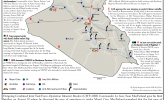
Outgoing Combined Joint Task Force-Operation Inherent Resolve (CJTF-OIR) Commander Lt. Gen. Sean MacFarland gave his final briefing, as the Council of Representatives (CoR) approved five ministers in a partial Cabinet reshuffle.
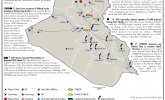
The Popular Mobilization, including major Iranian-backed Shi’a militias, sought to formalize their participation in operations in northern Iraq.
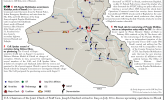
U.S. Chairman of the Joint Chiefs of Staff Gen. Joseph Dunford arrived in Iraq on July 30 to discuss upcoming operations in Mosul with Coalition, Iraqi, and Kurdish officials.
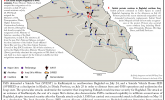
Prime Minister Haidar al-Abadi accepted the resignation of seven ministers on July 19 and July 20, suggesting that PM Abadi will seek to restart the Cabinet reshuffle process.
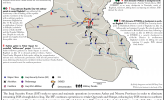
The Iraqi Security Forces (ISF) seeks to open and maintain operations in western Anbar and Ninewa Provinces in order to eliminate remaining ISIS strongholds in Iraq. Sadrist Trend leader Muqtada al-Sadr led thousands of protesters in Tahrir Square on July 15, giving usual demands for technocratic and anti-corruption reforms.
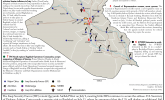
The Iraqi Security Forces (ISF) retook Qayyarah Airfield West on July 9. U.S. Secretary of Defense Ashton Carter announced on July 11 that the U.S. will deploy an additional 560 soldiers to Qayyarah airbase in order to provide logistical support for future ISF operations to retake Mosul.
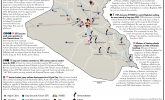
ISIS detonated a suicide vehicle-borne IED (SVBIED) in the majority Shi’a neighborhood of Karrada in central Baghdad on July 3, resulting in the deadliest attack in Iraq since 2003.
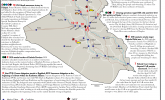
The Iraqi Federal Court ruled that two key sessions of the Council of Representatives (CoR) in April, one held by legitimate CoR and the other held rebelling members of a rump parliament, were illegal.